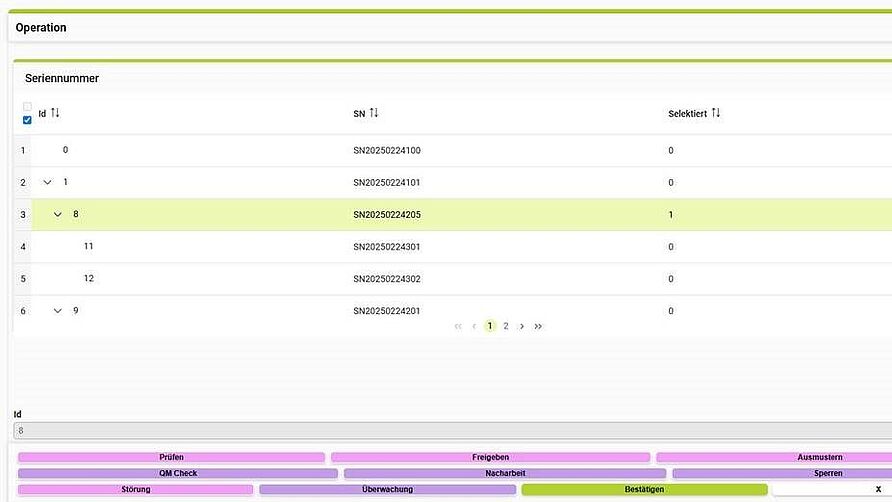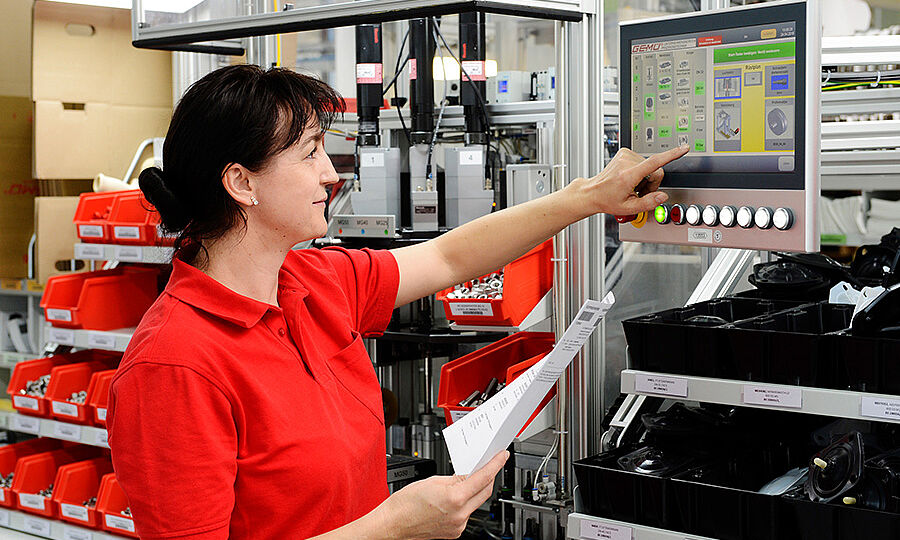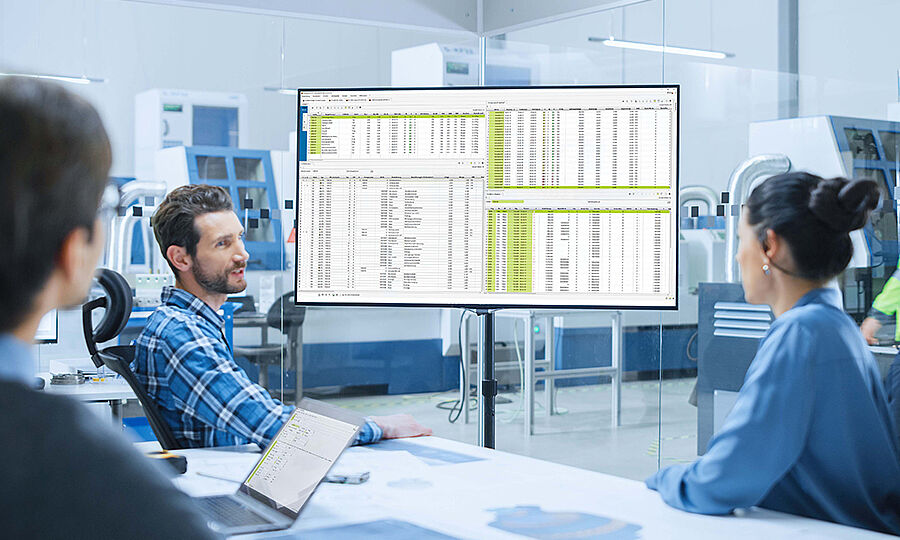From changing order situations to new customer expectations and increasing time constraints, today's manufacturers must be able to adapt their processes quickly. PSI customers can do just that with PSIpenta/ERP Workflow Developer. The motto is: design processes instead of programming them. Configure interfaces instead of adapting functions. And implement changes where they arise—in your daily work.
Your ERP system as a flexible collaborator
ERP systems are the digital backbone of companies. Anyone familiar with them knows their strength lies in standardized processes and their weakness in flexible adaptation. Even minor adjustments can lead to lengthy development cycles. Want to quickly integrate a new approval process? Impossible. What about integrating data from an external application? Complicated.
This presents a particular dilemma for medium-sized manufacturing companies: They need to become more agile without completely customizing their systems, which would be too expensive. The solution? A flexible process-building block system integrated directly into the ERP system.
The Workflow Developer: Model processes instead of programming them.
PSIpenta/ERP Workflow Developer is a powerful tool that allows PSI customers to model business processes without programming or source code intervention. The intuitive web interface allows users to model processes in BPMN 2.0, customize them, and integrate them directly into the ERP system. This saves time and conserves IT resources while making continuous process optimization part of everyday practice.
The highlight: In addition to ERP functionalities, external systems, such as machines or office applications, can be integrated into the same interface. This allows for end-to-end processes from the office to the shop floor.
Three real-life scenarios
1. Manage product approval across departments
Before a new product goes into production, many gears must mesh. BOM lines, routings, costings, and material master data are usually created in parallel and in different departments. A modeled workflow can clearly structure these dependencies. The approval process defines which departments must give their consent. Once all involved parties have digitally approved the product, it is released automatically, without additional queries or coordination loops.
2. Escalation in the event of delivery delays
Rather than relying on manual queries, a modeled workflow automatically detects when a supplier is experiencing delays. The purchasing department receives an info mail, alternative suppliers are displayed, and production orders are reprioritized. The entire process is digital and traceable - based on current data.
3. Dynamically manage user interfaces on the shop floor
Process-driven flexibility also benefits machine operators. A typical scenario: After starting an operation, the serial number of a component must be recorded - a step that is often overlooked in everyday business. To prevent this, the query can be stored directly in the workflow. Then, the required dialogs and fields appear dynamically in the user interface, adapted to the role, device, and situation. Machine operators receive the exact information and input options they need at any given moment, presented clearly and contextually without requiring additional development effort from the company.

Why small and medium-sized businesses in particular should secure this advantage
Many medium-sized companies face a common challenge: They excel in operations but often lack the time, personnel, or budget to digitize their processes. PSIpenta/ERP Workflow Developer specifically addresses these bottlenecks:
- Departments can contribute without IT expertise
- IT departments are freed up – no source code, no customizing
- Changes are visible immediately, with no waiting time
- Agile project methodology enables rapid success
Particularly in the context of continuous improvement processes (CIP), the Workflow Developer becomes a real driving force because it not only allows changes, but also supports them in a targeted manner.
This is the PSIpenta/ERP Workflow Developer!
With Workflow Developer, you can design web-based workflows and user interfaces that comply with BPMN 2.0 - no programming required! Click here to access Workflow Developer!
Technology and integration: How the Workflow Developer works
PSIpenta/ERP Workflow Developer is based on proven standards, enabling sustainable and future-proof use in both the office and the shop floor.
Visual process design with BPMN 2.0
Modeling is done via Camunda Standard directly in the workflow editor.
- Web-based interface: Can be used on all devices – from large monitors to mobile scanners
- Direct integration via web services: Seamless integration of ERP functions and external systems (e.g., machines, Office programs)
- Process-driven user interfaces: Workflows adapt content and input fields dynamically to the current work context.
With Workflow Developer, companies can model internal processes such as four-eyes principle, integrate cross-departmental reconciliation, and control processes across systems. Companies remain flexible and retain full control.
Process adaptation is the responsibility of the specialist department, not the next IT project
The market is changing, customer requirements are growing, and processes are evolving. Anyone who has to wait weeks for necessary ERP adjustments is losing valuable time. With PSIpenta/ERP Workflow Developer, however, you can easily and visually design processes yourself without any development effort. Adaptability is not an IT project. It is your strength.
Every process is different. It's good when your ERP understands that too.
With Workflow Developer, you can make your everyday work more agile - without any coding. Let's explore how this could benefit your company.
Get in touch with us! We will be happy to advise you.



